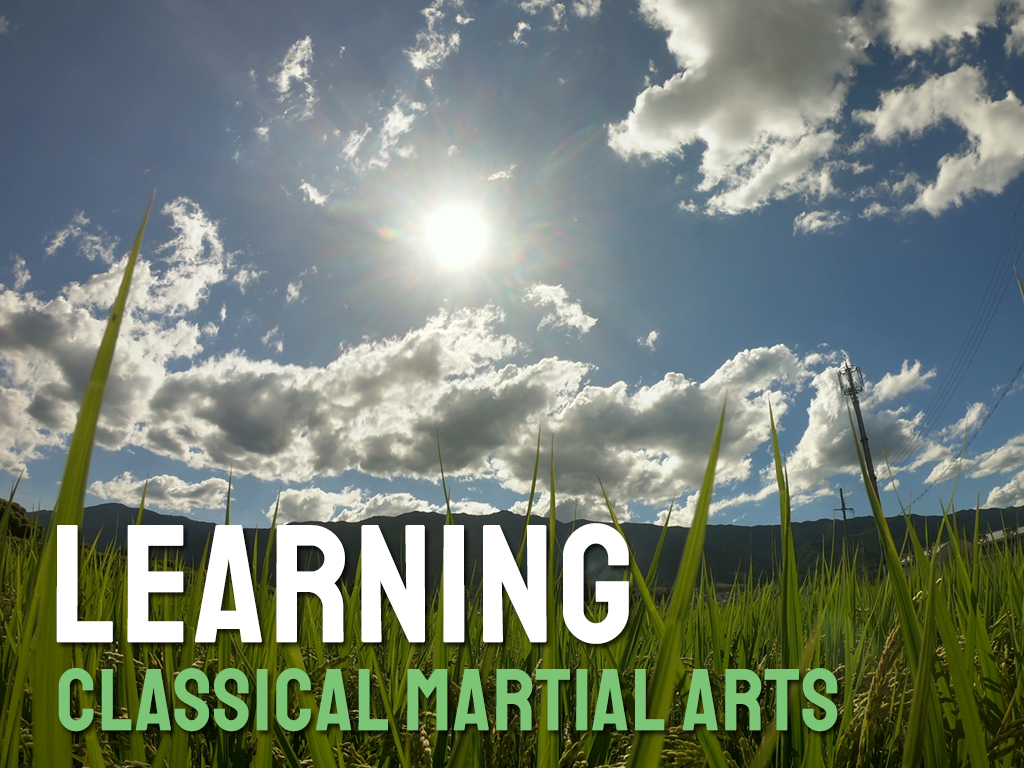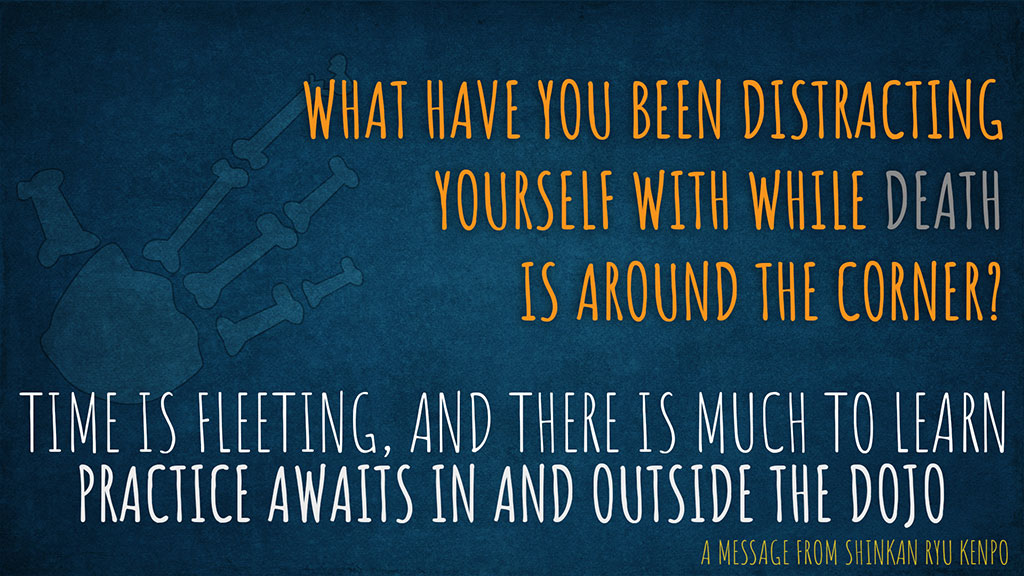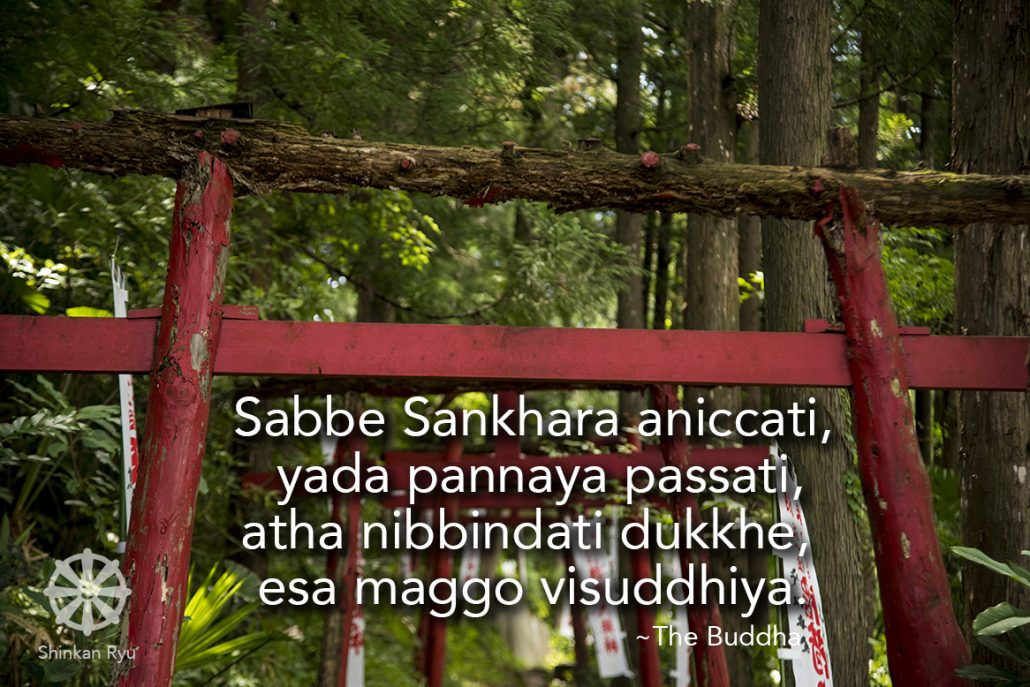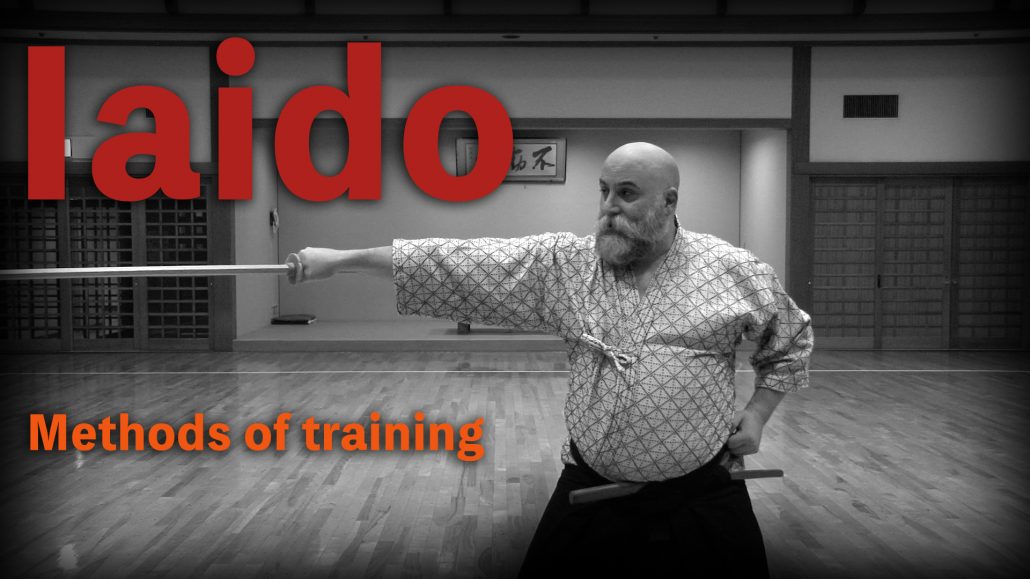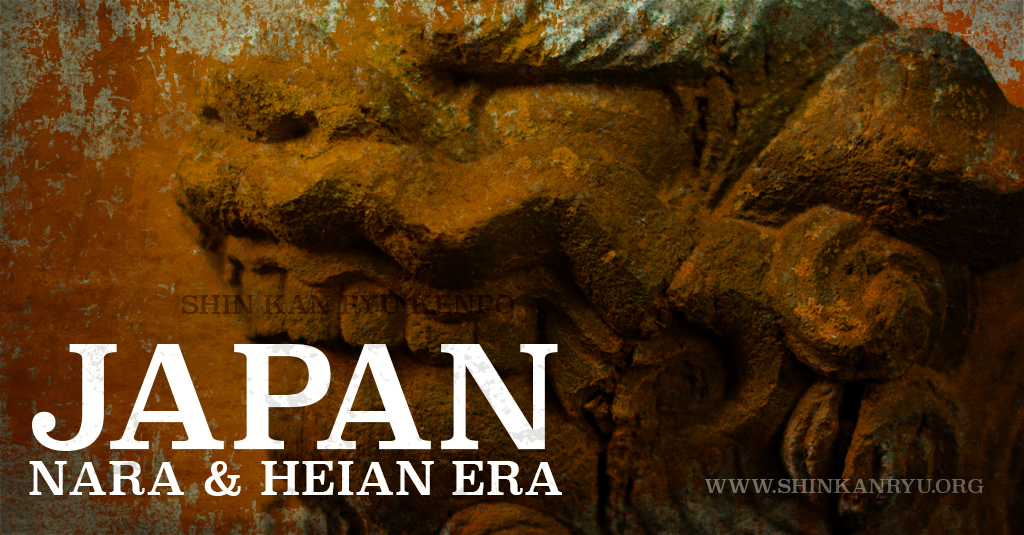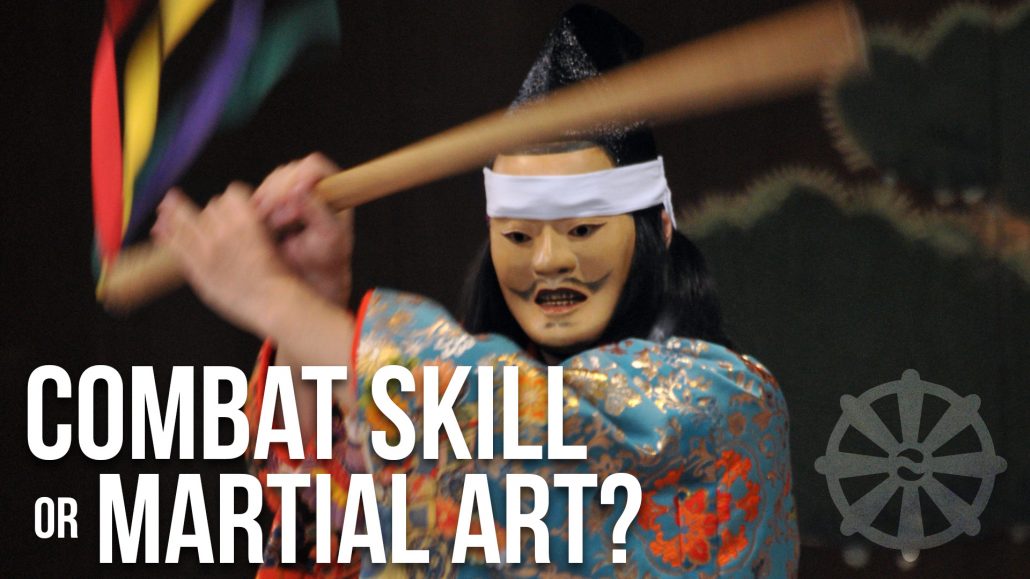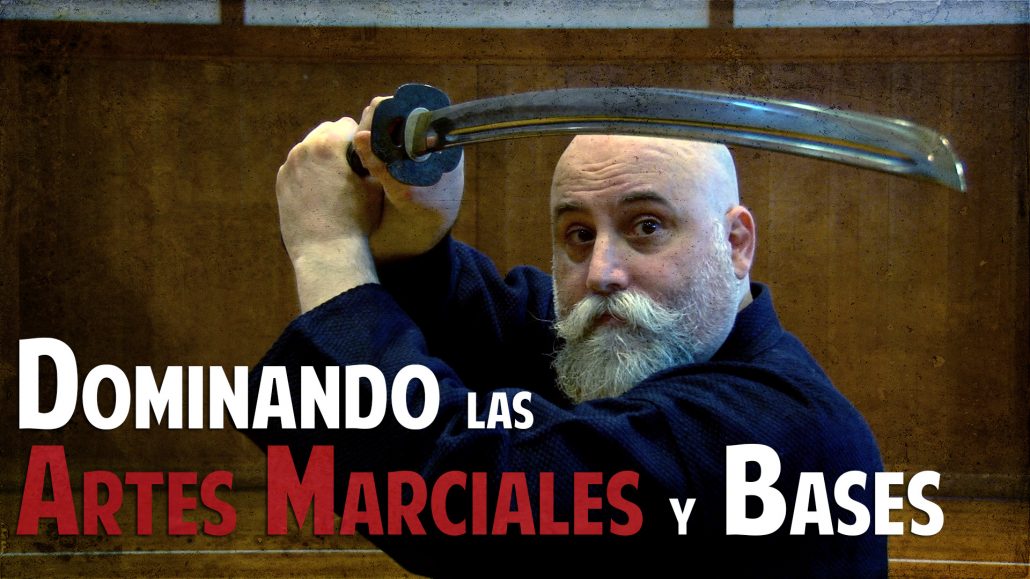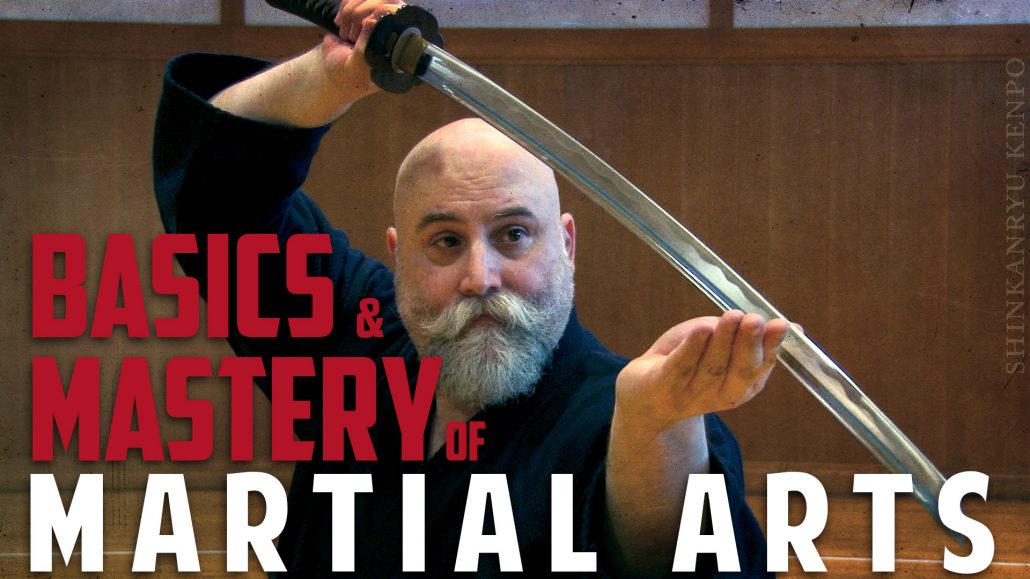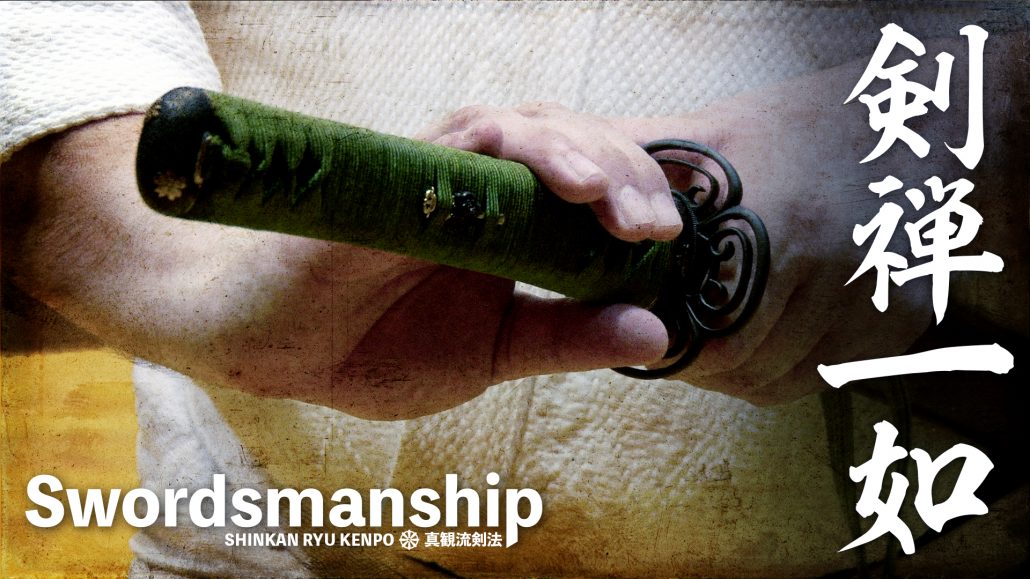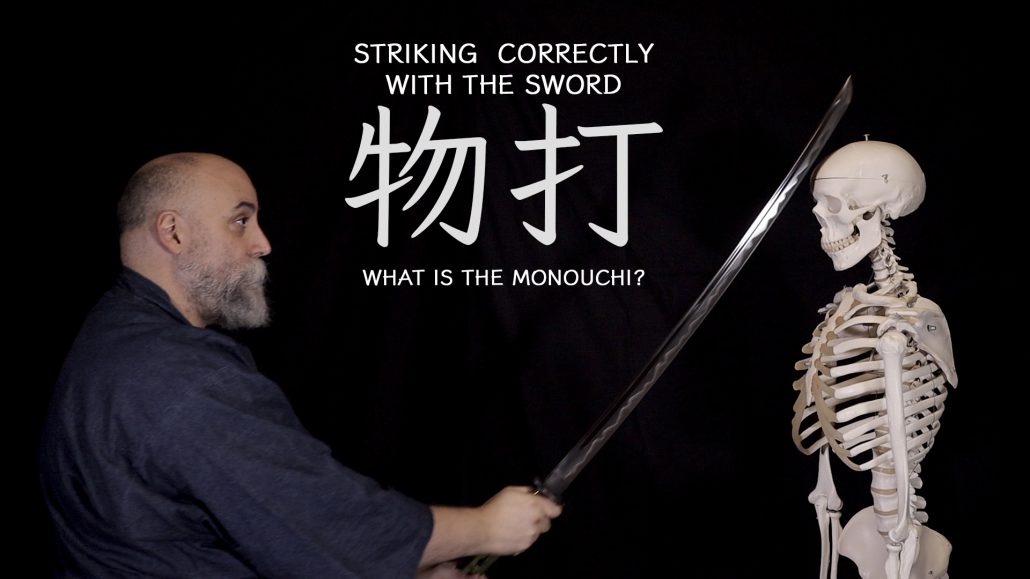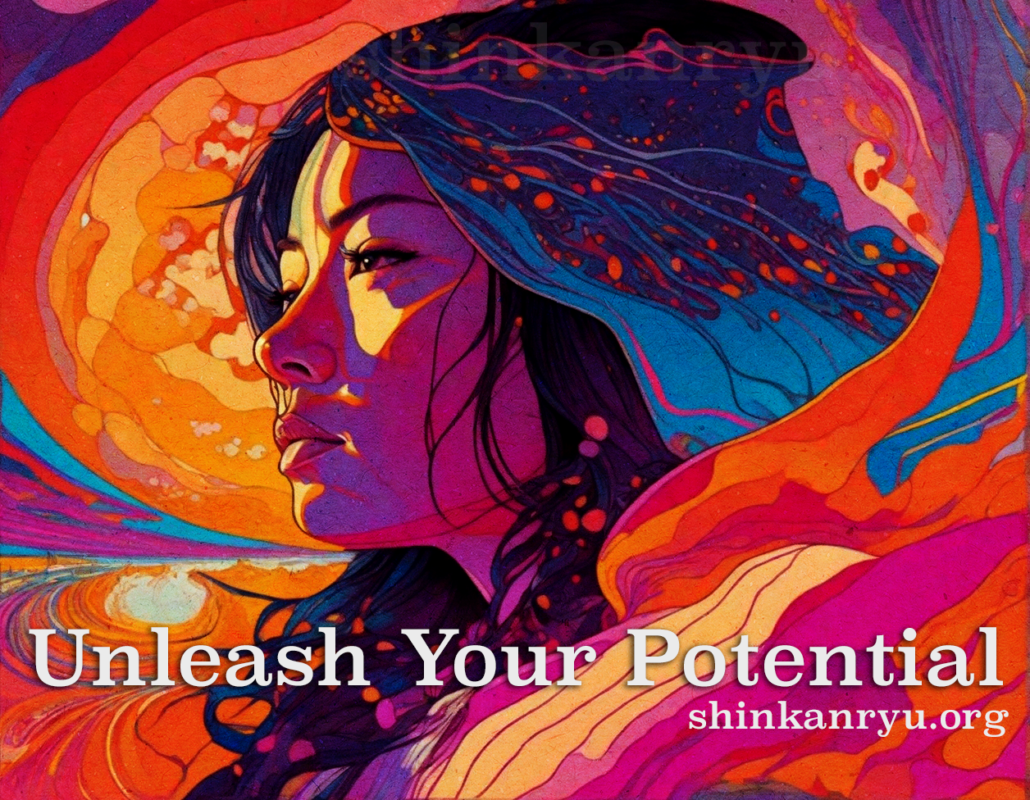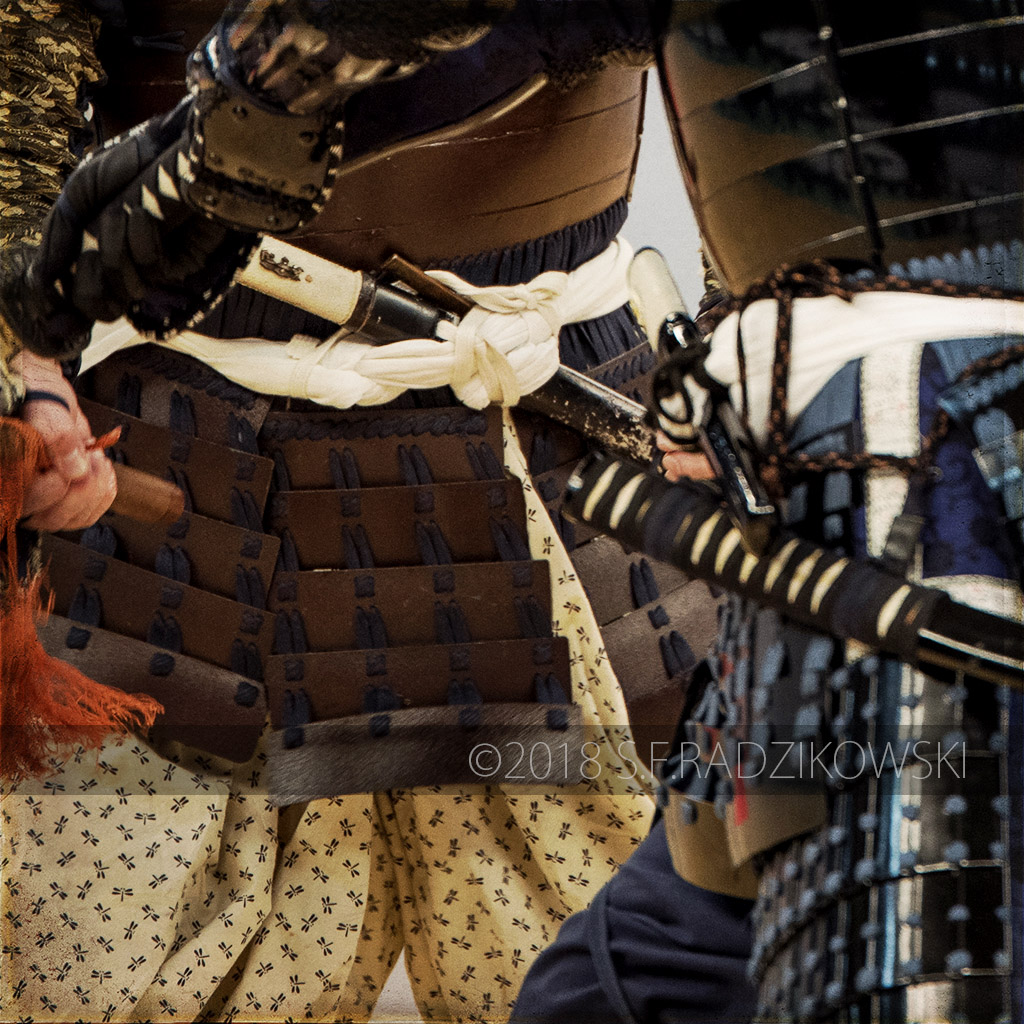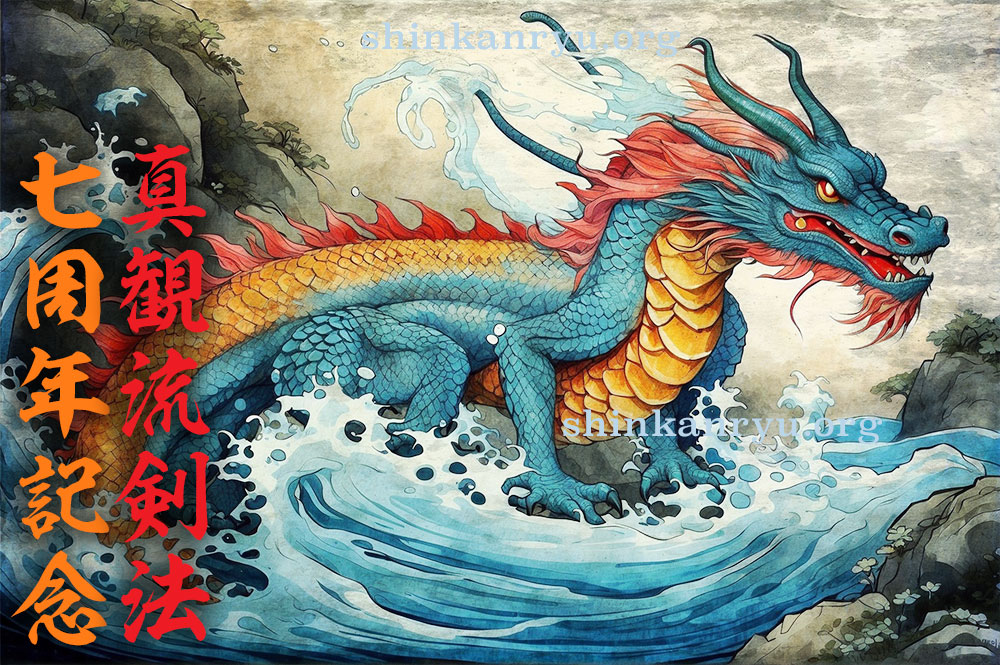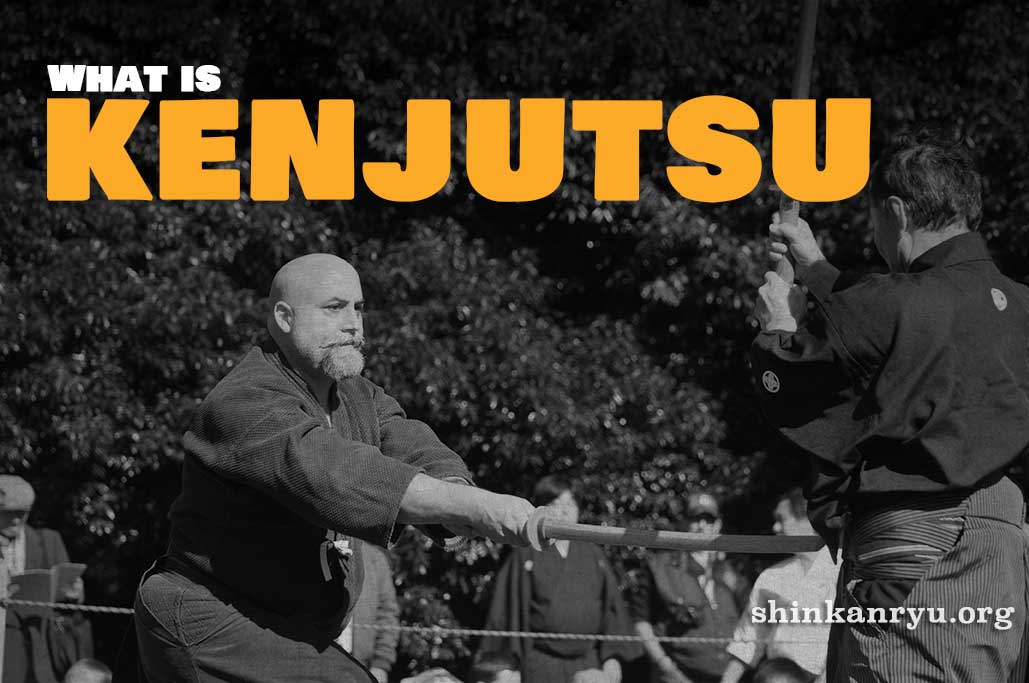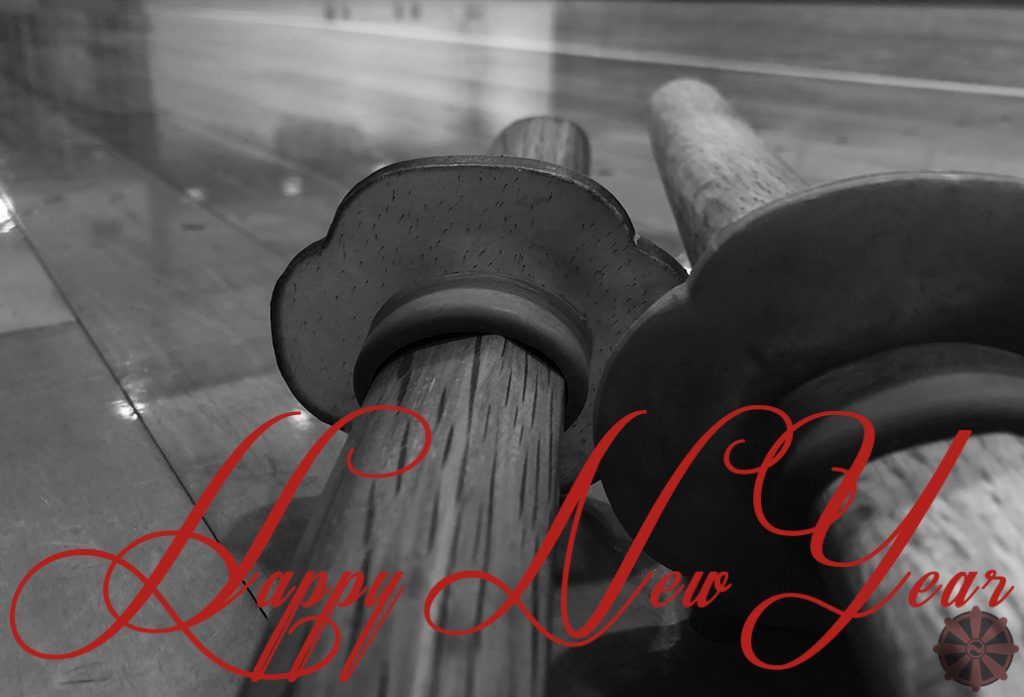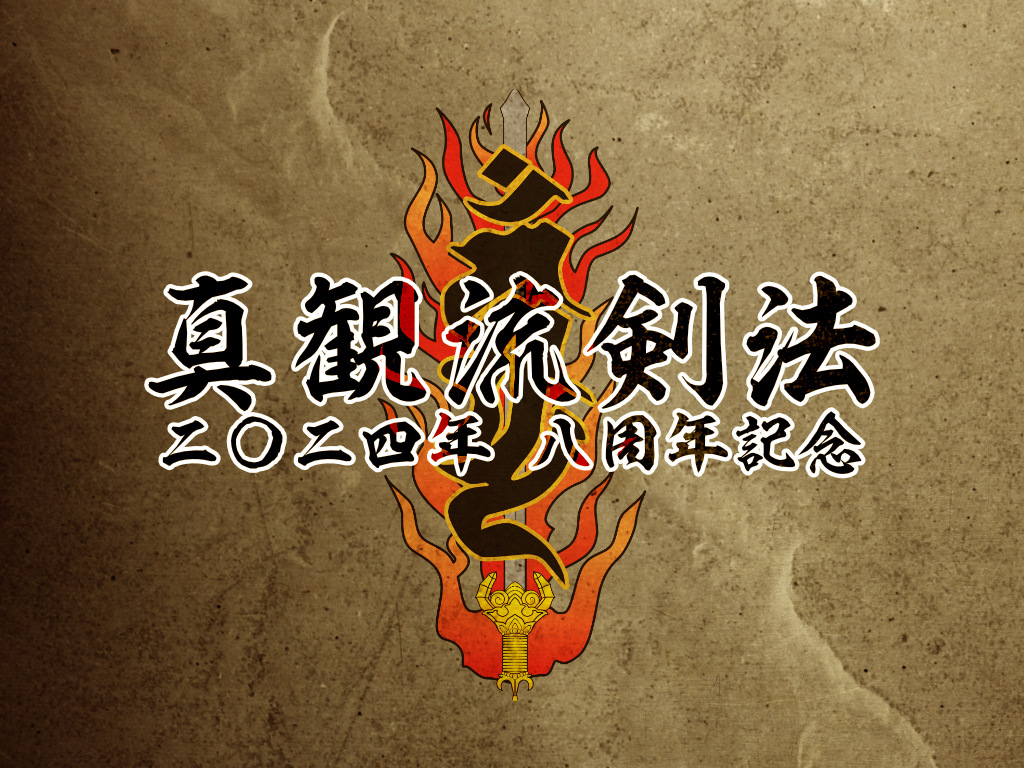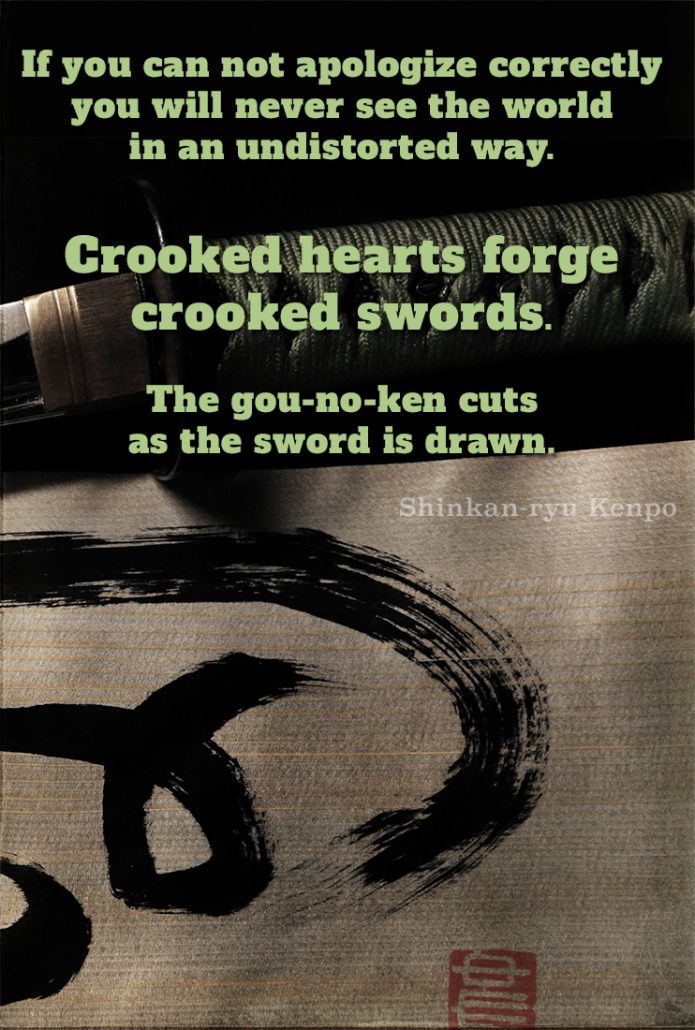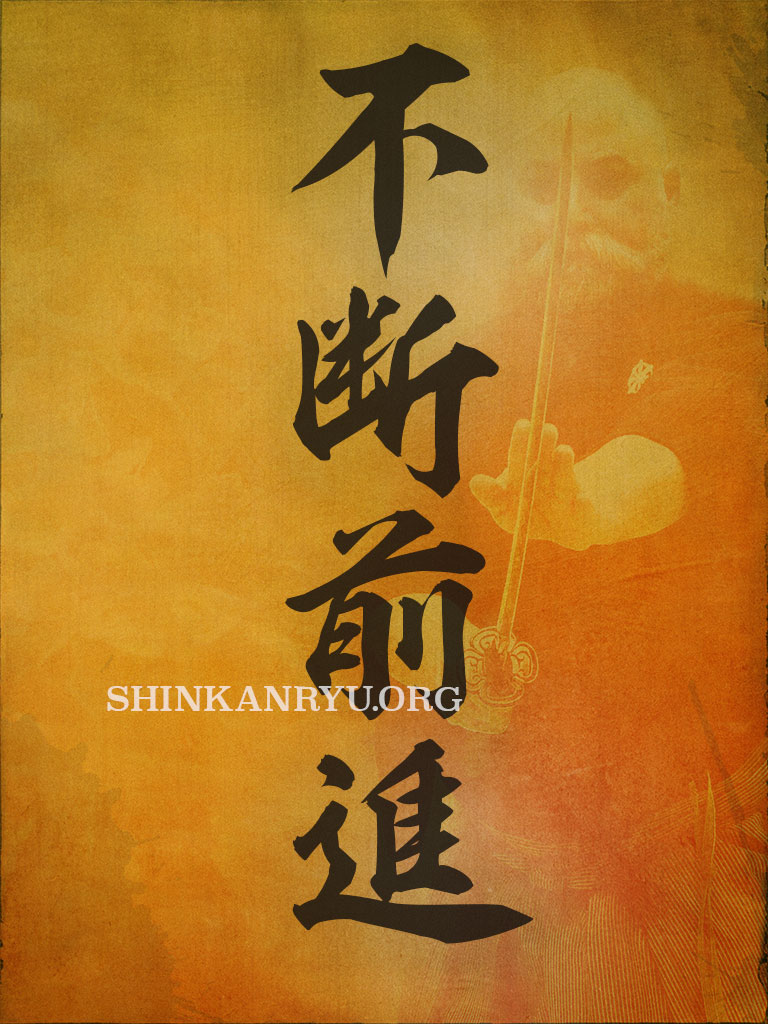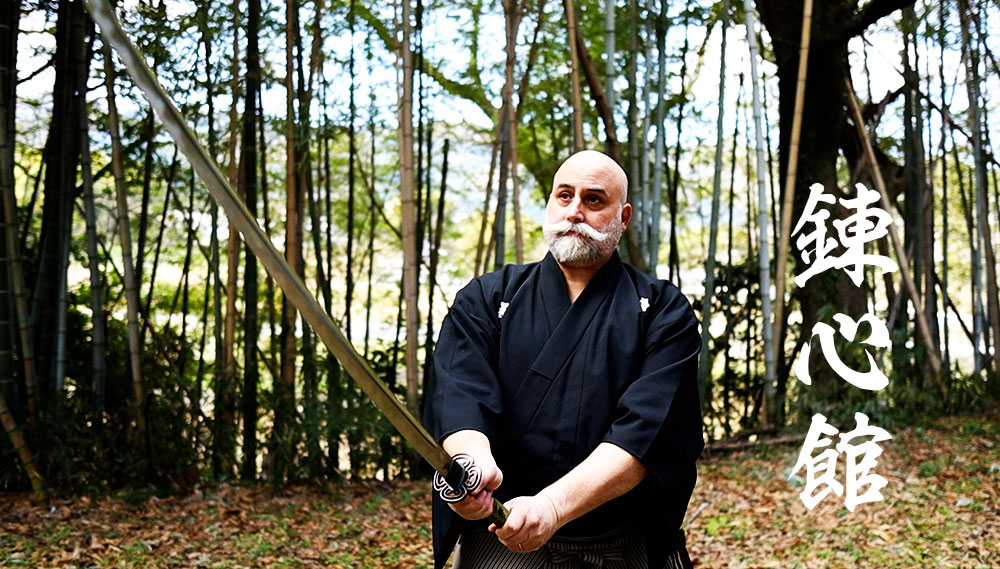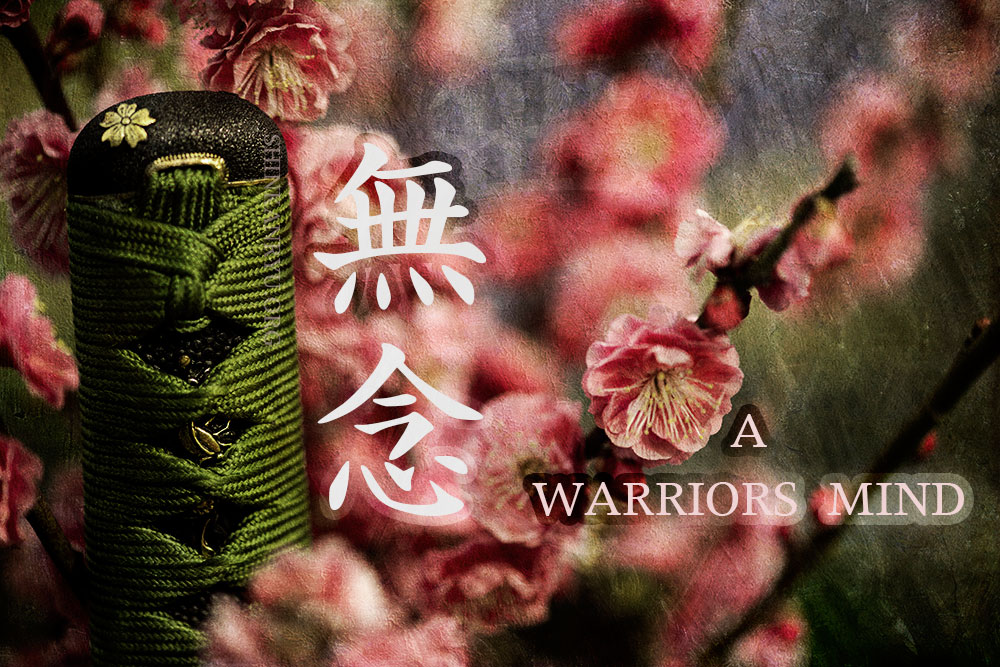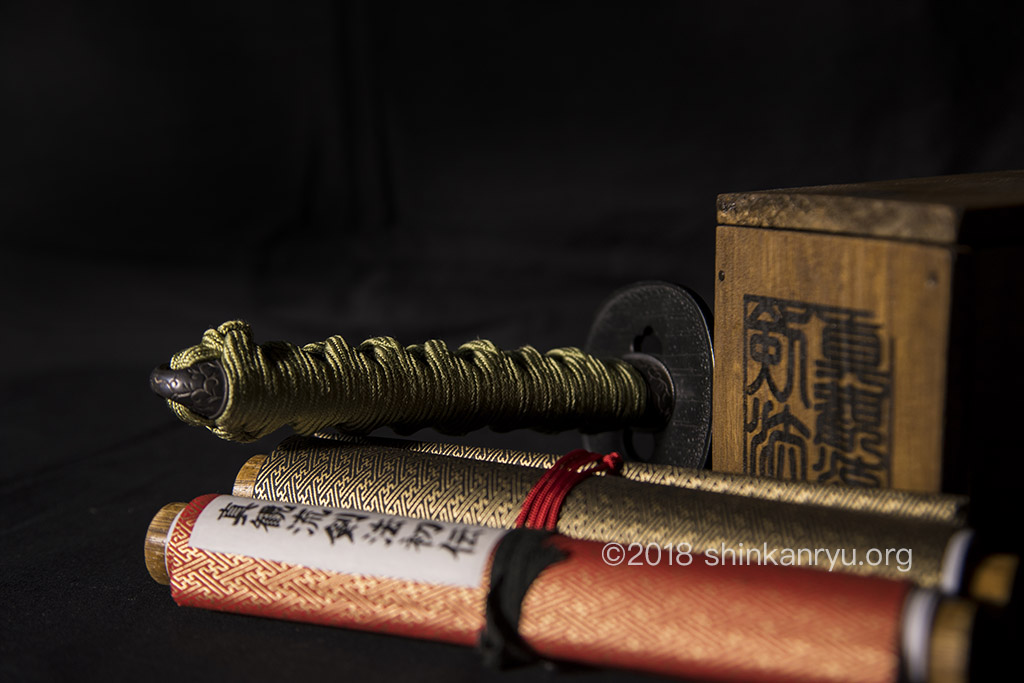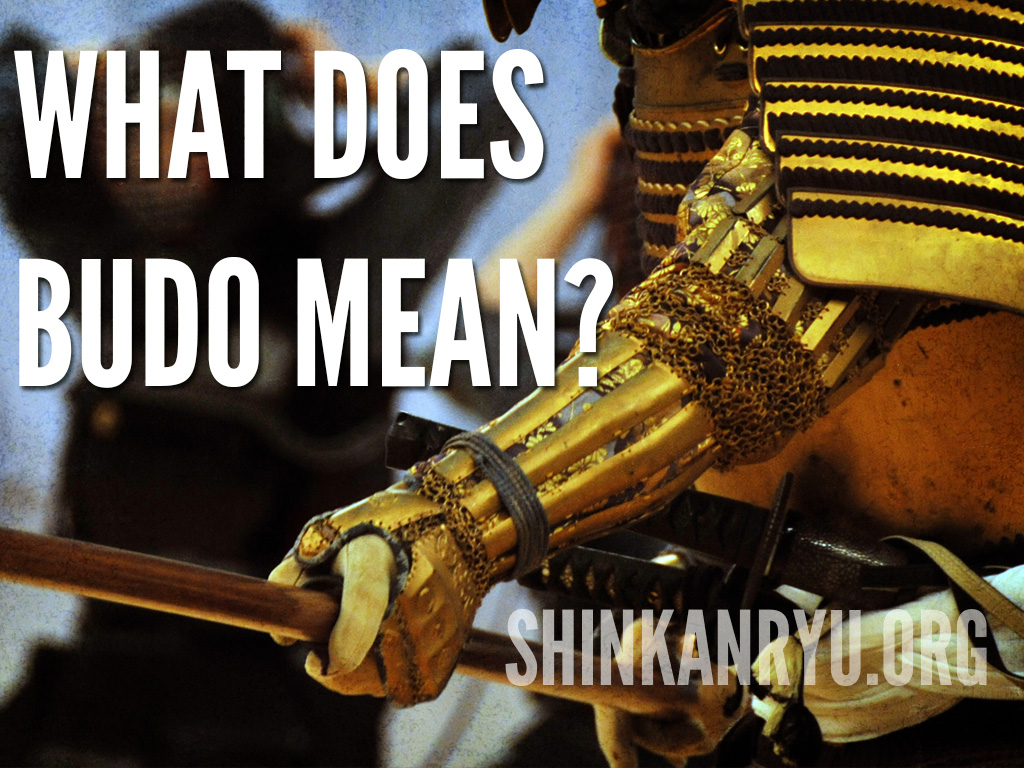In Japanese, the older martial arts are referred to as koryu 古流 or kobujutsu 古武術. There are two ways to learn martial arts. You can learn a generic art or sport in a large group, for example. For example, baseball, basketball, modern (post-war) kendo, judo, and kyudo are popular types of sports or martial arts where group learning is used. The flavor of such groups is somewhat basic. I don't mean simple or easy. There is a lot of skill in both modern and classical arts. Cornflakes and white rice appeal to most people because the taste is neutral. There is nothing wrong with a bowl of cornflakes or a kendo school. When we step into traditional martial arts we are stepping into someone's private home.
Prior to the mass teaching methods, there existed a more focused and intimate way of learning martial arts. Based upon the closed door systems of other arts like singing, dance, sculpting etc.etc. the koryu of pre-modern Japan taught very distinct martial arts within their respective ryūha 流派 systems. Learning in a large group has its benefits. Learning something very nuanced and detailed is not fit for large group instruction. It is like the handing down of a mom & pop store. In fact, the tradition is shown in the character nagare 流れ which means to flow. The handing down of tradition, the flow of information from one to another. The information is not generic either. It is specific. How the sword is used might have some general rules based on its construction, shape, and structure, but how the swordsman employs techniques with the sword is as almost varied as there are personalities.
How one breathes, steps, walks, holds their posture and even thinks is all tied into the ryu-ha they study in and belong to. It is important to understand that belonging is a very key part. You did not exist outside your school. They were literally the walls and roof protecting you. Even today koryu are very much the same including the political and secretive behavior that existed in the 1700s. Some koryu have not dispensed with some of that silliness, as in my opinion most of it is just anachronistic behavior in 2019. Though even in this day and age we must have a bit of an old school mentality when learning these arts. It is not for the sake of replicating the old fashioned ways of doing things, but rather to settle into the proper groove of learning.
What is proper learning in traditional bujutsu? Learning kobujutsu the ryū-ha is a very big focus in one's life. The martial arts I practice and teach is not a hobby. It is a very real endeavor. Like an endless university. Each day a lot of energy is put into understanding the waza and the technical and philosophical aspects of swordsmanship. People do not want to hear that. Often someone wants to spend a very minimal amount of time, like a year or two, and then go off on their own. The internet turns people into armchair samurai or sensei and contributes to this issue. The truth is, learning this means you have to supplicate yourself to your teacher and the school.

Giving In To The Mountain
The Yamabushi 山伏 of Japan are interesting to me in this regard. Not so much the individual wandering ascetic, but their namesake. Yamabushi are religious adherents of Shugendo an integration of Shinto, esoteric Buddhism, and Taoism. The yamabushi also has a fair history of warriors, fighting, and weapon systems. Yama 山 means mountain. Bushi you might be thinking means warrior 武士 but the character is fusu 伏 meaning to give in or to prostrate oneself. I translate yamabushi as one who gives in to the mountain. When we visit the temple we prostrate in front of the Buddha. Many Christians perform this as they enter churches or the pews as well. It is found in many cultures and religions. When we learn traditional bujutsu we must give in to the teacher. I have touched on the issue of getting involved in a martial arts cult before. We should give in to the teacher that will support us and has a desire to transmit their knowledge to us. If we are not open and steeped in the school then we are not able to learn all there is, and some times even not learn all.
We should, as students, be giving in and having the attitude of prostration to our ryūha. Our teachers are not gods, nor are they perfect. They are, however, the ones with the information, and in order to receive that information, we need to have the right kind of relationship with them. The idea that you pay your teacher money and he owes you something, is not proper. You pay tuition to support your teacher and school. You keep the lights on or quite literally food on your teacher's table if you are donating meals etc. There are many ways to support a teacher. The first level of support is with our attitude. The only thing our teachers owe us is respect as a human being and to treat us decently. The treatment, of course, can be narrow in our views, but it is their way or the highway, as the saying goes. We must adhere to their way of doing things.
This Mountain Sucks. I Want Off!
I have been there. I have been with teachers that, in my view, don't treat people fairly or kind. Regardless I never fought with them, but rather went and found someone to better match my views of what a teacher should be. There are many types of teachers, and it is best to find one that you gel with, respect, and genuinely enjoy talking to or learning from. Even with a teacher, you feel comfortable with there will always be a time when things aren't easy and you have to swallow some bitter medicine. Learning means accepting a lot of critiques. We can't expect a teacher to hold our hands all the time and gently explain things. I don't think coddling is a good idea. So if it sucks because of the chemistry and over and over you find yourself unable to find someone you mesh with then you have to take a long hard look at yourself. It just might be you.
It takes time to develop a relationship as well. Don't be too quick to give up. We need to open ourselves up to our teacher. It is scary. Some times people let us down or abuse our vulnerability and generosity as students. I have seen it all. The good and the bad. If we respect ourselves and our teachers, even if we don't agree we can properly disengage with them. It some times takes years to find the right ryūha to fit in. Koryū is not for everyone. I have seen many different types, however, and the more open-minded teachers have healthy open-minded schools and kind open-minded students. If you want to learn a specialty martial art then it takes special commitment. There is nothing wrong with the run of the mill iaido or judo, but those groups and schools have different values and goals. Classical martial arts have a more narrow goal of creating a certain type of martial artist. In order to walk that path, we have to be flexible and give in to the teacher.
Joining a kobujutsu ryūha is like joining a family or adopting a parent or sibling. It is a serious commitment and a deep and rewarding experience. But it has to be done correctly. It requires a different mindset than other martial arts endeavors as mentioned before. Your commitment and honesty more than dollars are needed in abundance to learn kobujutsu or koryū. As I have said many times, the heart is the most important component Take some time to reflect the amount of dedication involved in keeping the school's tactics, weapons and philosophy alive for the last few hundred years. Our school, our life is really our mountain. It is a sacred place where we travel and learn. We should attempt to be more like the yamabushi and give in to the mountain and all it has to offer.
death budo
What have you been distracting yourself with while death is around the corner? Time is...
Impermanence, The Mind, and the Truth
After every meditation session my teacher, with his eyes still closed, would softly speak in...
Iaijutsu Iaido Sword Timing Lesson
Timing while training alone is an important aspect to keep alive and well in the...
Japanese Era 710-1868 Part 1 Nara & Heian
Nara period. 710-794 We shall begin with the Nara period. 710-794. Japan had recently changed...
Are Combat Skill, Self Defense & Martial Art The Same?
Why make the distinction between martial art and combat skill? I believe that combat skills...
Dominando las Artes Marciales y las Bases
Hablaré acerca de bases y dominio. Antes de comenzar, quiero decir que usaré la palabra...
Mastering The Martial Arts and Basics
I will be talking about basics and mastery. Before I begin, I want to say...
Ken Zen Ichi Nyo Sword & Zen Are One
剣禅一如 The sword and zen are one. The mind of zen is an important consideration...
Striking with the Katana: What is the Monouchi?
https://youtu.be/pXpzSBLGkbI
Unleash the Potential of Your Iaido Success
We’re diving deep into the art and discipline of Iaido, a journey that goes far...
Martial Arts Creator Origin Myths of Japan
Japanese Koryū Creator myths; becoming enlightened and making up a whole martial arts system. Some...
7 Year Anniversary of Online and In-person Sword Learning
Today marks a significant milestone in our journey — the 7th Anniversary of Shinkan-ryu Kenpo!...
What is Kenjutsu? A guide to Japanese swordsmanship
Kenjutsu (剣術) is the Japanese art of the sword. It is one of the four...
Happy New Year
From all of us at Shinkan-ryū Kenpō to you, Have a wonderful New Year Celebration....
Reflections on 31 Years of Martial Arts and 8 Years of Shinkan-ryū Kenpō
不動心 (Fudōshin) – The Immovable Mind As I mark 31 years of practicing martial arts...
Learning Koryū Kenjutsu & Iaijutsu Traditionally
The Sword of Kamma
Within Shinkan-ryū are teachings to being responsible for our actions. Admitting fault of miss-actions or...
Advance The Sword And Mind
No matter what, move. Advance. Unceasingly against whatever odds, internal or external, move towards the...
6 Years of Shinkan-ryū Kenpō
Last week marked the 6th year of Shinkan-ryū Kenpō. I want to thank the faithful...
Munen Muso And Mushin The Warriors Mind
What is the difference between munen and mushin? These concepts outline the ideal mental state...
Budo Thoughts
There are techniques and scrolls and teachings all over the dojo. What does it matter...
What does Budō mean?
I’d like to discuss briefly discuss what Budo or Bujutsu means. I’m not a scholar...


